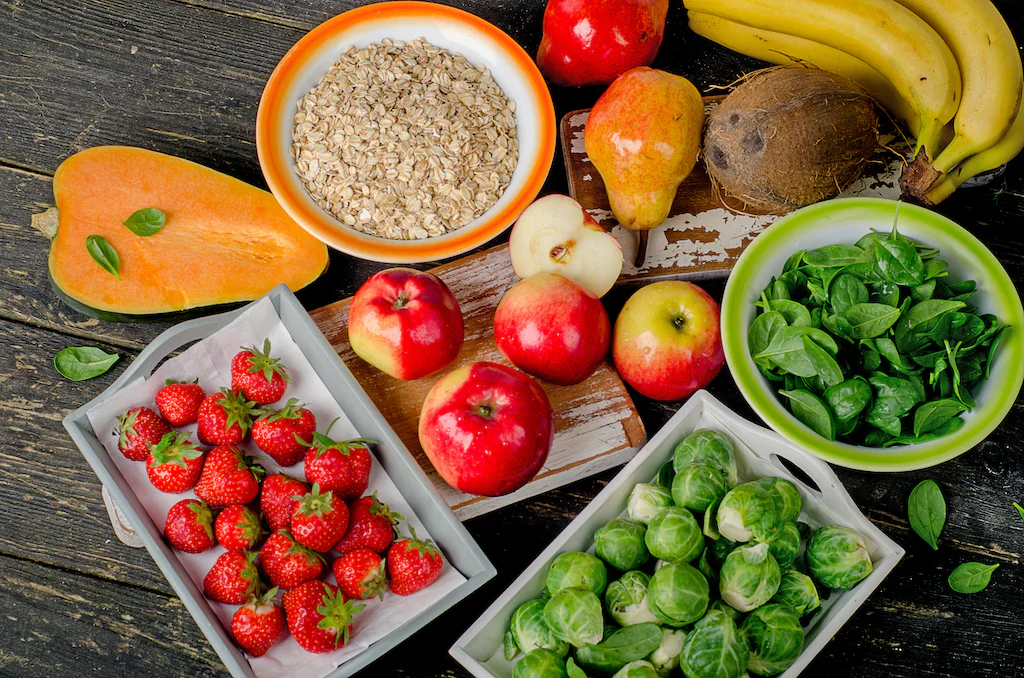Contents
- 1 Understanding Healthy Eating Habits
- 2 The Importance of Nutrition in Daily Life
- 3 Small Changes Make a Big Difference
- 4 The Power of Portion Control
- 5 Choosing Whole and Natural Foods
- 6 Hydration and Its Role in Healthy Eating
- 7 The Balance Between Indulgence and Discipline
- 8 Mindful Eating and Body Awareness
- 9 The Importance of Meal Planning
- 10 Eating for Energy, Not Just Taste
- 11 How Sleep and Stress Affect Eating Habits
- 12 Creating a Sustainable Lifestyle
Understanding Healthy Eating Habits
When people talk about living a healthier lifestyle, it always comes down to one thing — Healthy Eating Habits. It’s not just about counting calories or cutting out certain foods, but about creating a balanced relationship with what you eat. Having Healthy Eating Habits means giving your body the nutrients it needs while still enjoying the food you love. It’s all about balance, consistency, and making mindful choices that you can maintain in the long run.
The Importance of Nutrition in Daily Life
Your body needs the right fuel to function properly, and that fuel comes from what you eat. Practicing Healthy Eating Habits helps you maintain energy levels, support brain function, and improve your overall mood. When you fill your plate with a mix of fruits, vegetables, whole grains, and lean proteins, you’re giving your body the tools it needs to stay strong and active. Good nutrition doesn’t just affect your physical health but also plays a huge role in mental well-being.
Read More: Understanding the Importance of Reduce Stress Daily
Small Changes Make a Big Difference
You don’t have to change everything overnight to start adopting Healthy Eating Habits. Simple adjustments, like drinking more water, eating breakfast, or reducing sugary snacks, can already make a big impact. Swapping fried foods for grilled options or choosing fruit instead of candy are small but meaningful steps. The goal is to make gradual changes that turn into daily habits rather than short-term restrictions. Over time, these little improvements add up and become part of your lifestyle.
Read More: Effortless Style: How to Rock a Simple Daily Outfit
The Power of Portion Control
One of the most underrated aspects of Healthy Eating Habits is portion control. Even healthy foods can cause weight gain if eaten in large quantities. Learning to listen to your body’s hunger cues helps prevent overeating. You don’t have to eliminate your favorite meals, just be mindful of how much you consume. Eating slowly and savoring every bite gives your brain time to recognize when you’re full. This simple habit can improve digestion and prevent unnecessary snacking later on.
Read More: How to Be More Confident in Daily Life
Choosing Whole and Natural Foods
Processed foods might be convenient, but they often contain additives, preservatives, and excess sugar that your body doesn’t need. Focusing on whole and natural ingredients is a core part of Healthy Eating Habits. Try to build meals around foods that come from nature — fresh vegetables, fruits, nuts, legumes, and lean meats. These foods are rich in vitamins, minerals, and fiber that keep your body running smoothly. The more natural your diet, the better your body will respond.
Read More: Better Sleep Quality: How to Wake Up Feeling Rested and Recharged
Hydration and Its Role in Healthy Eating
Drinking enough water is often overlooked when talking about Healthy Eating Habits, but it’s actually one of the most important elements. Water helps with digestion, flushes out toxins, and keeps your skin glowing. Sometimes when you feel hungry, your body might just be dehydrated. Make it a habit to drink water regularly throughout the day, especially before meals. You can also add slices of lemon or cucumber for extra freshness if plain water feels boring.
The Balance Between Indulgence and Discipline
Building Healthy Eating Habits doesn’t mean you can never enjoy your favorite dessert again. The key is moderation. It’s completely fine to have a slice of cake or a scoop of ice cream once in a while. What matters is that you balance indulgence with nutritious meals. If you eat clean most of the time, a little treat won’t ruin your progress. Remember, the goal is to enjoy food without feeling guilty or overly restricted — balance is the foundation of healthy living.
Mindful Eating and Body Awareness
Mindful eating is a major part of Healthy Eating Habits. It’s about paying attention to your food and being fully present during meals. Avoid eating while scrolling on your phone or watching TV, as this often leads to overeating. When you eat mindfully, you appreciate the flavors, textures, and aroma of your food. It also helps you tune in to your hunger and fullness signals. This habit not only improves digestion but also builds a deeper connection between your mind and body.
The Importance of Meal Planning
Planning your meals ahead of time is one of the smartest ways to maintain Healthy Eating Habits. It saves time, money, and helps you avoid impulsive food choices. By preparing your meals in advance, you have better control over ingredients and portion sizes. You can experiment with new recipes, prepare balanced meals, and reduce the temptation of fast food. Whether it’s prepping your lunch for work or planning dinners for the week, meal planning keeps you consistent and organized.
Eating for Energy, Not Just Taste
When developing Healthy Eating Habits, it’s helpful to think of food as fuel rather than just pleasure. The right foods give you energy to perform at your best, while unhealthy choices can leave you feeling tired and sluggish. Start your day with a balanced breakfast, include protein in your meals, and avoid excessive caffeine or sugar that causes energy crashes. The more you focus on nourishment instead of cravings, the more energized and productive you’ll feel throughout the day.
How Sleep and Stress Affect Eating Habits
Believe it or not, your sleep and stress levels have a big impact on your Healthy Eating Habits. Lack of sleep can make you crave high-calorie foods, while stress often triggers emotional eating. Maintaining a balanced lifestyle means taking care of both your body and mind. Try to get enough rest and find healthy ways to manage stress, like exercising, meditating, or spending time outdoors. When you feel balanced mentally, it’s much easier to make better food choices naturally.
Creating a Sustainable Lifestyle
At the end of the day, Healthy Eating Habits are all about sustainability. It’s not a temporary diet but a long-term commitment to taking care of your body. Find what works for you, because everyone’s nutritional needs are different. Some people prefer a plant-based diet, others feel better with more protein — and that’s okay. The key is consistency and awareness. When you enjoy your meals, listen to your body, and nourish it properly, healthy living becomes second nature




